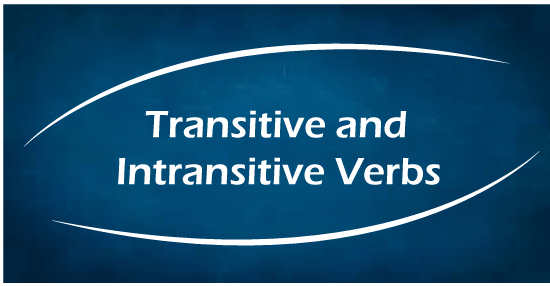Transitive and Intransitive verbs
Action verbs can be either transitive or intransitive. The details of these two are given below. Action verbs can be either transitive or intransitive. The details of these two are given below. 1. Transitive VerbsVerbs with an object, in other words, the verbs that have an object, are called transitive verbs. That object may be a person or a thing that is affected by the action of the verb. There can be the passive form of the transitive verb. Examples:
A transitive verb also may have two objects 'direct object' (the thing someone does or gives or usually the name of the thing), and 'indirect object' (someone who receives the action, in other words, the person to whom something is given or for whom something is done). Examples:
Some more examples of the transitive verb
2. Intransitive VerbThe verb without an object, in other words, the verb that doesn't have an object, is called an intransitive verb. There cannot be the passive form of an intransitive verb. Examples:
Some important points about transitive and intransitive verb
Examples:She cooked slowly. (Here, the verb 'cooked' has no object, and it cannot be passivized, so it is intransitive). She cooked a sandwich. (Here, the verb 'cooked' has an object 'sandwich', and it can be passivized, so it is a transitive verb). Some ants fight very fiercely. (Intransitive) Some ants fought the wasps. (Transitive) The bus stopped suddenly. (Intransitive) The driver stopped the bus. (Transitive) Ram spoke loudly. (Intransitive) Ram spoke the truth. (Transitive)
Examples:I enjoy myself sitting alone. (Intransitive) He enjoys good health. (Transitive)
Next TopicTypes of Verb
|
 For Videos Join Our Youtube Channel: Join Now
For Videos Join Our Youtube Channel: Join Now
Feedback
- Send your Feedback to [email protected]
Help Others, Please Share










